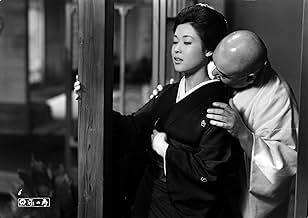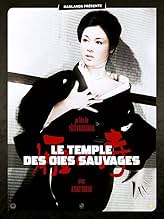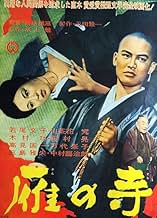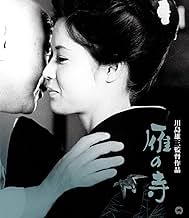When her old master, a great silkscreen artist dies, he sends Ayako Wakao to be cared for by Abbot Masao Mishima. He is not an ascetic sort of man. He smokes, he goes on the occasional pub crawl, and he uses Miss Wakao as his bed mate. She accepts it all. It's a woman's place, even in a rapidly modernizing Japan, where other monks get married and take nude photos of their wives, and the aftermath of funerals is cards for money. Kuniichi Takami is baffled by it all. He comes from a place called 'Beggar's Valley', of which he is deeply ashamed, will not admit to knowing who is parents are, and begins an affair with Miss Wakao at her instigation, all of which makes it difficult to attain enlightenment, or even understand the concept.
I've been trying to think of a good description for the attitude of this movie by Yûzô Kawashima, from a novel by Tsutomu Minakami, Is it Rabelaisian, mocking the norms with a goodly dose of bawdiness? Perhaps. Is it Hogarthian, disapproving and visually dark? It has those elements. Does it partake of the sensibilities of Utamora, the Japanese printmaker whose works were so smutty that he was arrested and disappeared? Probably all three.
This movie centers around the relationship of its three leads. Mishima is the abbot, able to do what he wants, and so he terrorizes Takami, but is obsessed by the intensely sexual Miss Wakao; Miss Wakao seems to seek dominance, but doesn't know what to do with it with Mishima, while seeking to be dominated by Takami; and Takami is terrified of and hates Mishima, is terrified of of Miss Wakao, and tries to dominate her when he is not retreating from her awkward advances. It's an unstable situation, and it will all end, but will there be anything left?

























